hymn Of the sahara
Written By Jenny Lockton
Photographed By Giulia Frigieri
Zigzagging our way through Morocco’s Atlas Mountains and down into the Drâa Valley, we drove until we could literally drive no further.
M’Hamid with about 7,500 residents is the last oasis — our final stop before we entered the barren dunes of the Sahara for this year’s Festival Taragalte, the seventh edition of the three-day music event.
Our journey started in Marrakech, a group of 17 strangers from six different countries, and over two days of traveling to this town, we became family.
Night settled before we made our way through the desert camp of Bivouac Le Petit Prince, finding our tents by torchlight with the canopy of stars above. It wasn’t until dawn that pure majesty washed over us with the surrounding tranquil silence.
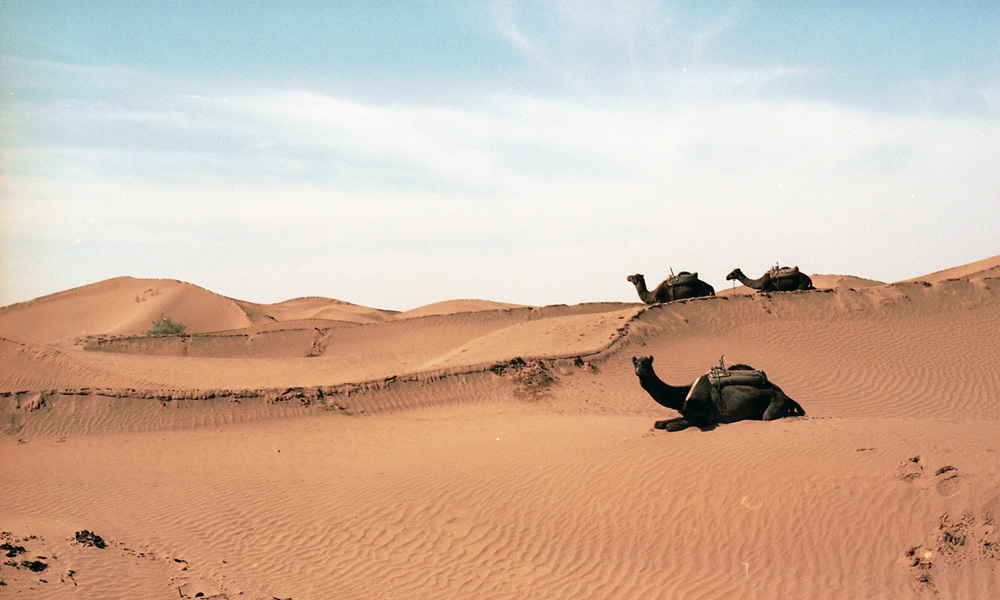
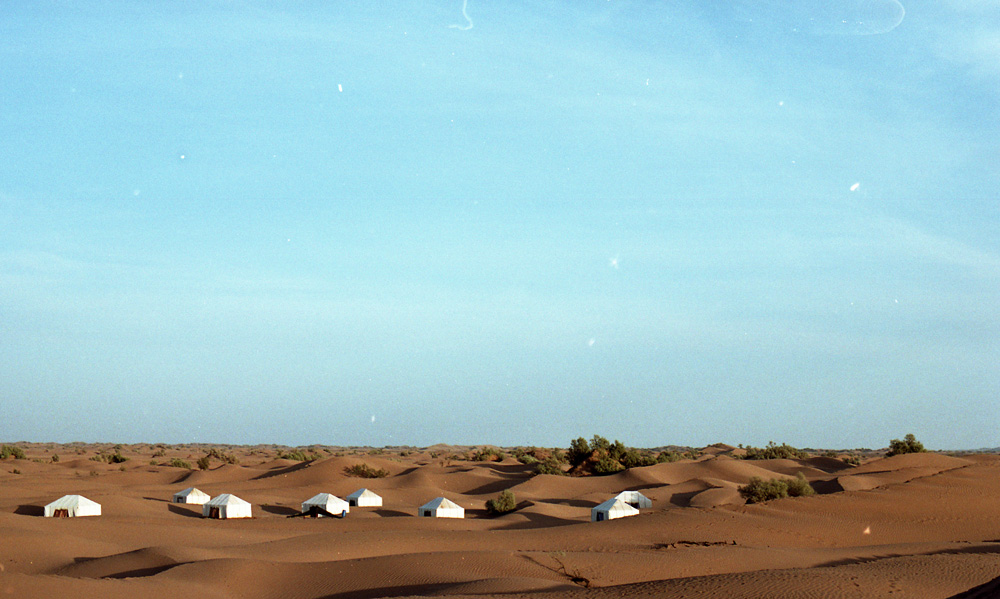
Taragalte translates to “meeting place,” which is truly what happens here with many people on many levels from many places.
All life here revolves around Bivouac Le Petit Prince, which was started by a group of nomads 15 years ago about 4 and 1/2 miles from M’Hamid. This camp is the last point of contact before the vast expanse of the deep desert beyond.
The desert has no borders apart from those created by political geography and military conflict — it’s these toxic forces that have resulted in the exile of large numbers of nomadic Saharan tribes from their traditional homelands and trade routes.
But we are here to celebrate, and the festival stands as a symbol of life in the desert, a safe place where people can gather in the spirit of peace and tolerance, an opportunity for cultural exchange and shared understandings.
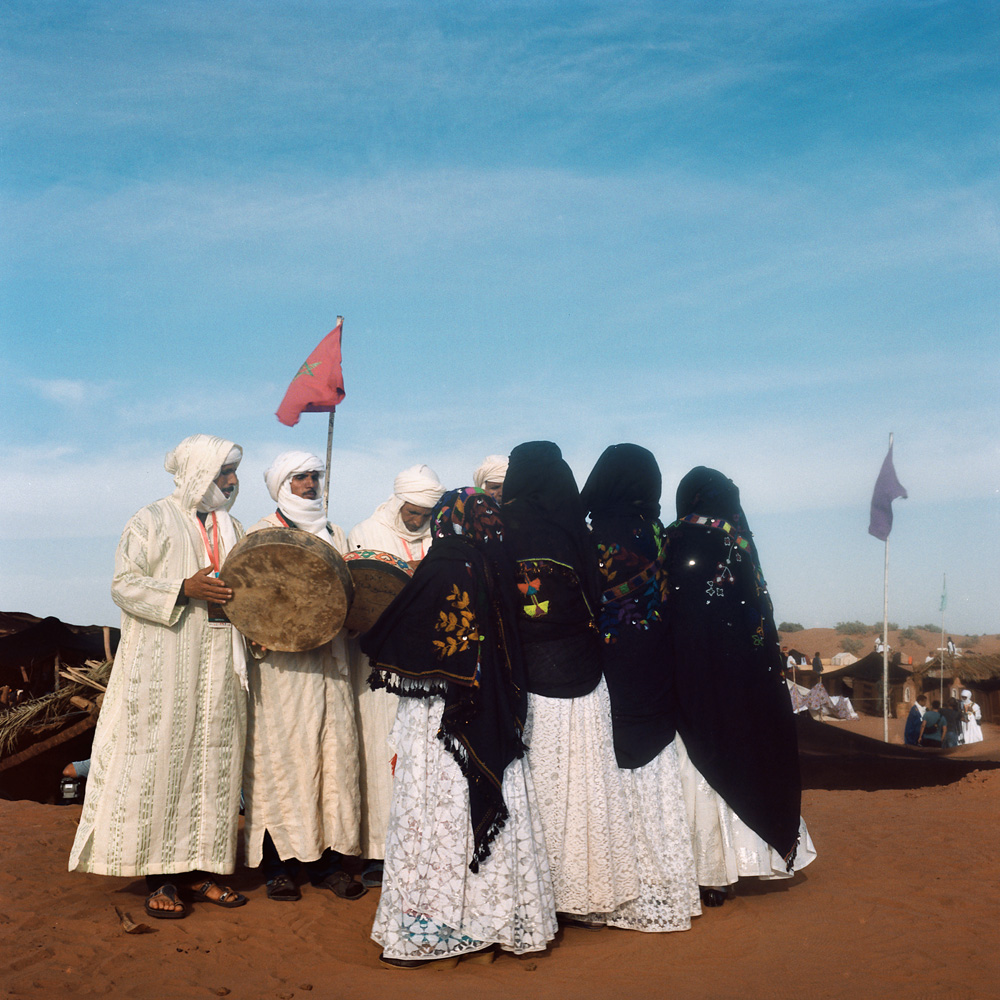
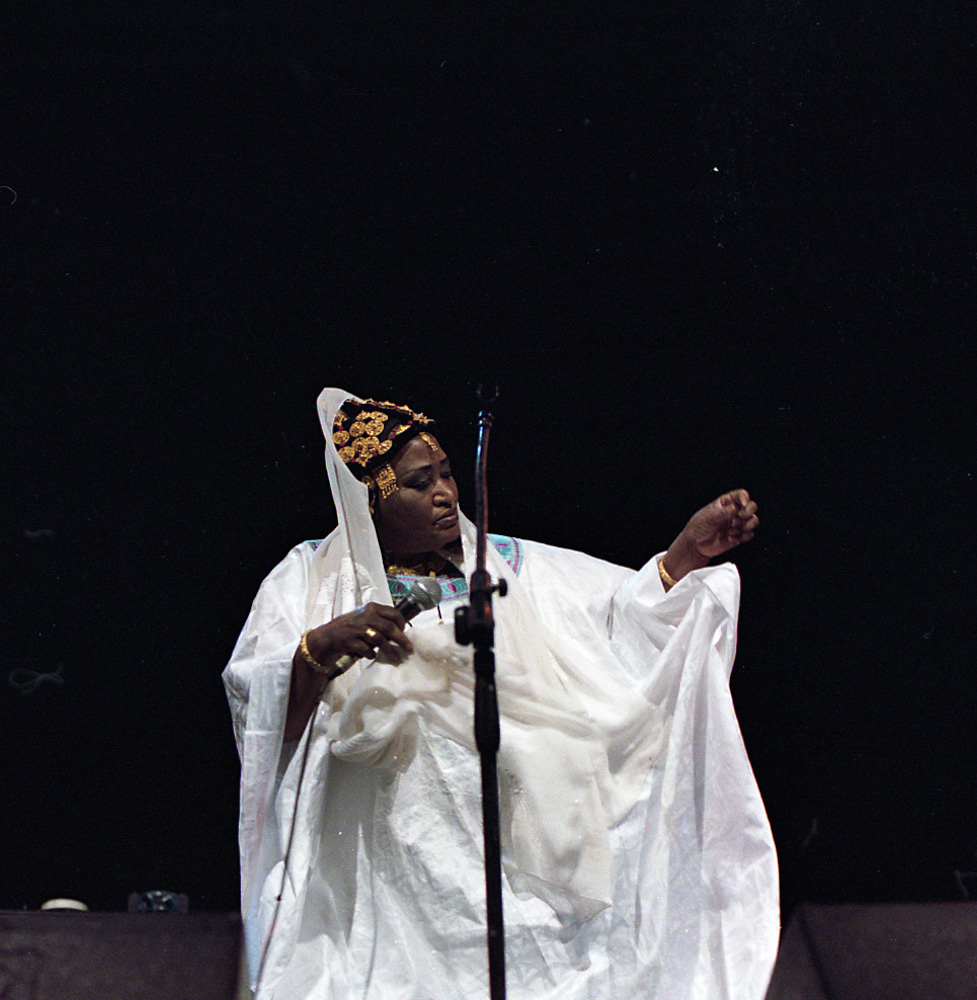
The festival is known as the Hymn of the Sahara with this year’s theme of “Oasis,” a literal theme of the greenery sustaining life in the desert but also a personification of utopian life built on harmony amongst diversity.
United by the universal language of music, groups from Algeria, Mali, Mauritania, Morocco, Niger and Senegal come to play. The heritage, culture and beauty of these lands are rich, and the festival plays an important role preserving the region’s traditions.
This festival is unlike any other I have experienced; there are no barriers here between the artists and the audience. We all hang out together, sleep in the same tented camps and eat meals together under the central canopy.
We must number 150 European visitors in an audience of 1,500, but we are all family, thoroughly modern nomads wherever we hail from. Jade from Texas, Adil and Mohamed from the village and myself from Scotland all sit with Abdallah Ag Alhousseyni, singer and guitarist of Tinariwen, and converse in a mix of Arabic, French and English.
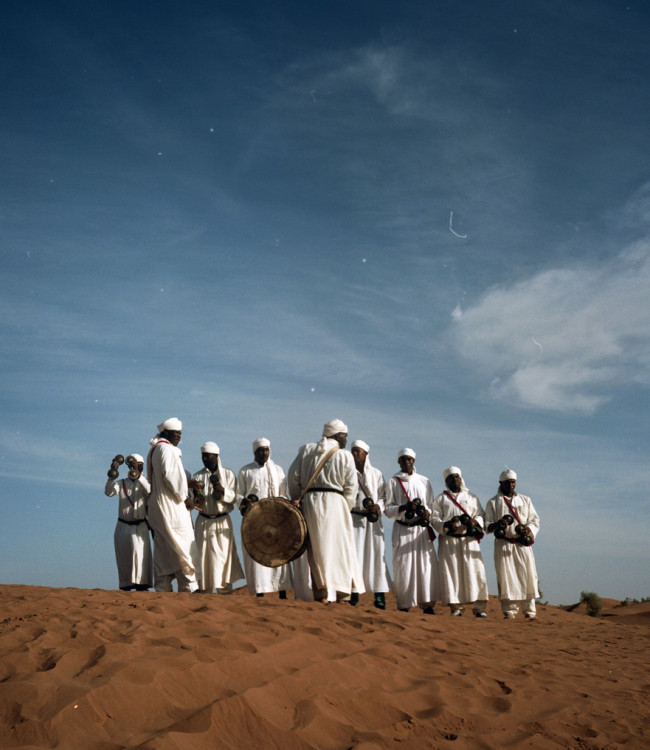
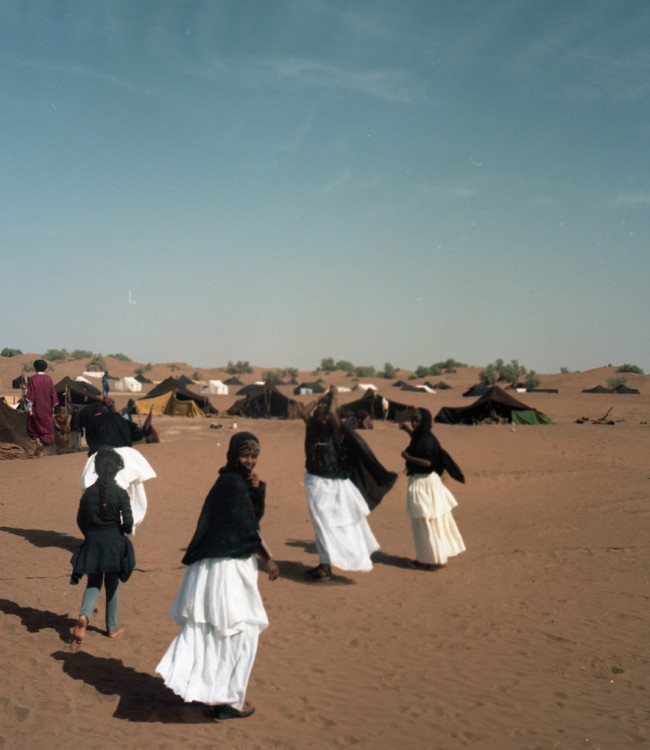
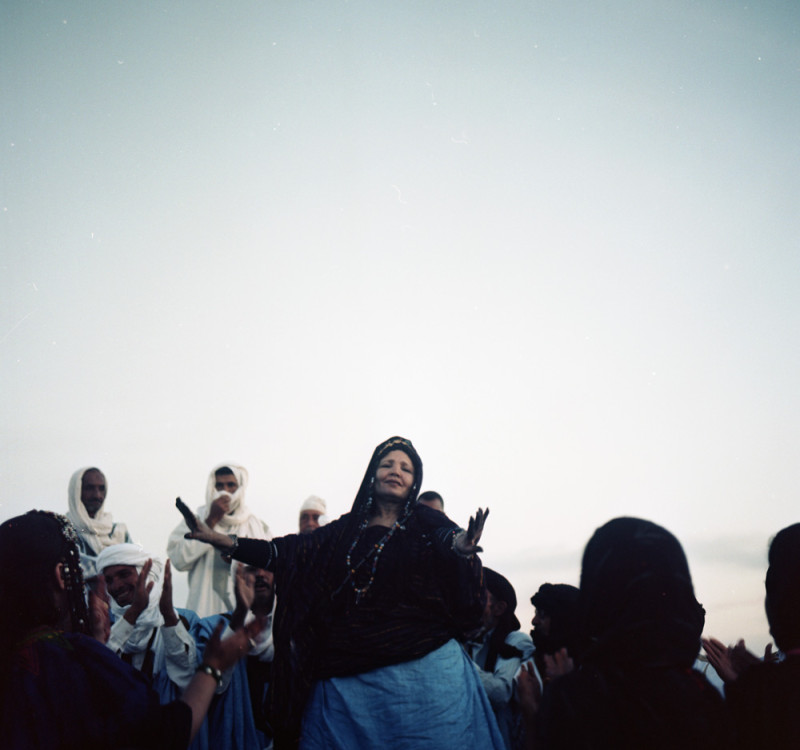
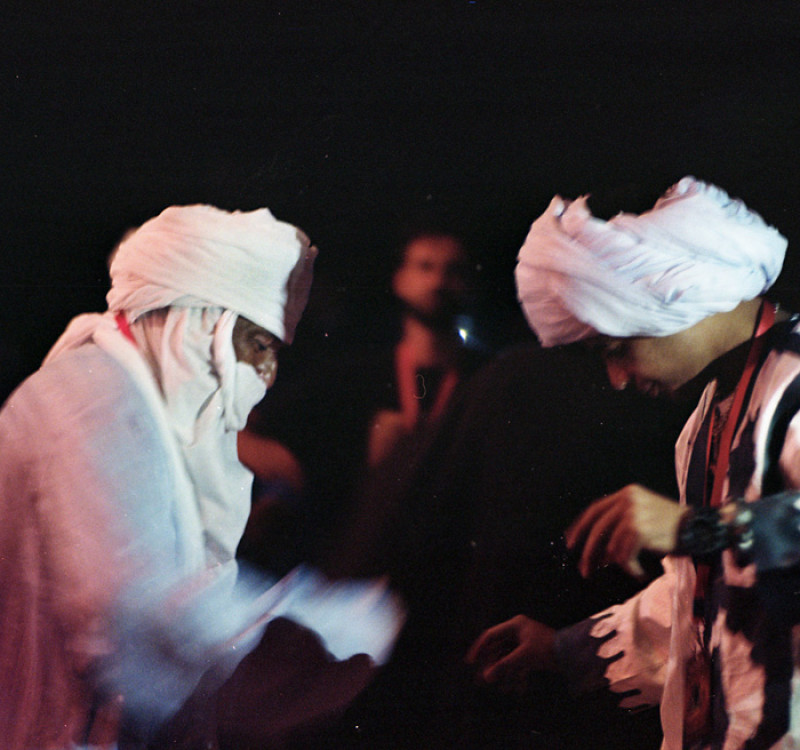
The following three days we spent in surrender to the vast and timeless desert. We learned from the organization Sahara Roots about protecting our fragile environment against creeping desertification through tree planting; Association Zaila illuminated their sustainable developments; and Cultural Caravan for Peace inspired us with their platform promoting social cohesion amongst the people of Sahel and Sahara through art and music.
Days in the dunes were a spectacle of costume and color with tribal musicians providing the soundtrack. At night, a deep indigo sky was the backdrop for bright stars.
We followed the flow of bodies to the main stage to be entranced by the music of Tinariwen, Imarhan, Oum and Aziz Sahmaoui. The driving rhythms and haunting vocals transported us to another realm, a magical other-worldly place.
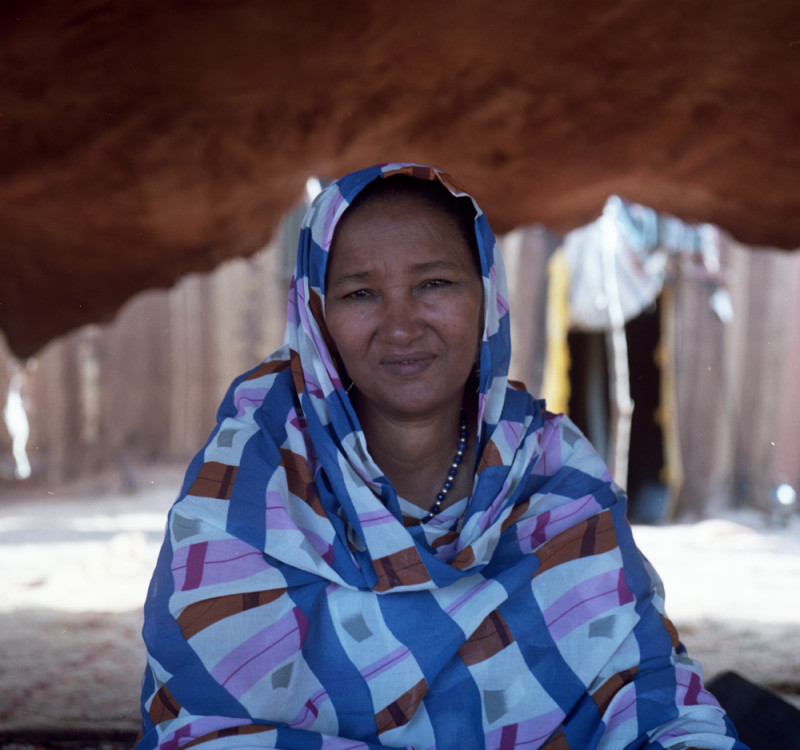
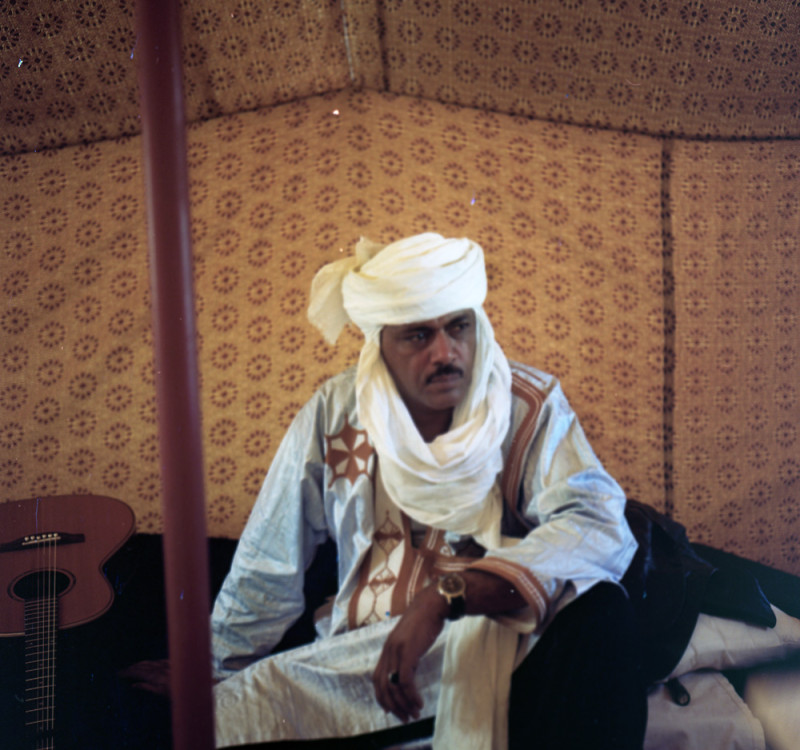
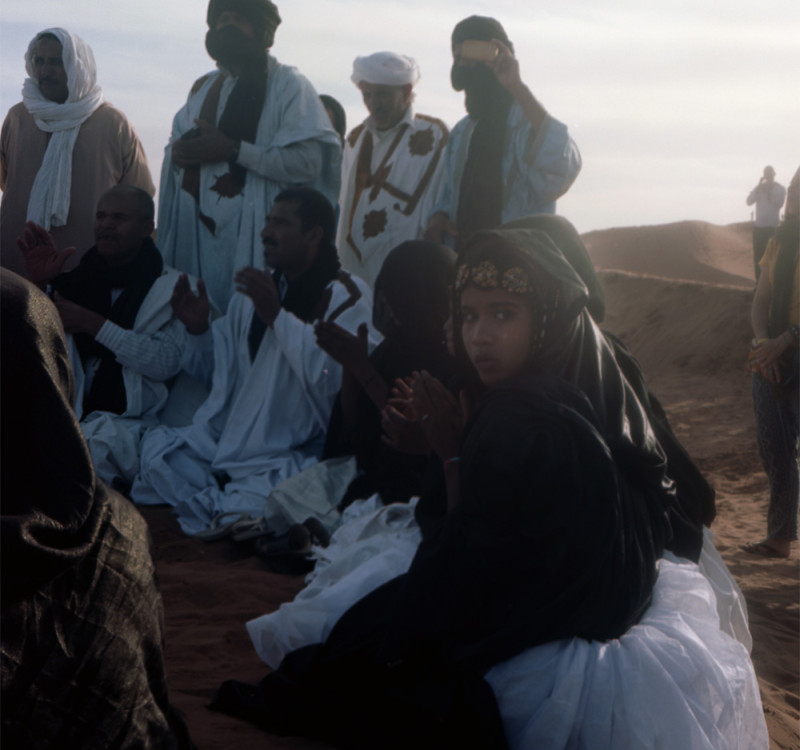
Intoxicated by song and the dance, floating on waves of sound high above the dunes, we party long into the night, finally falling into our tents to drift into a sleep lulled by the whisper of voices and instruments that carried far on the cool desert air.
This truly authentic festival has no place for pretension or faux new-age attitudes. It’s a place to experience a profound expansiveness bestowed by the desert and to be humbled by the grace and kindness of the nomad peoples who share their home with great humor and open hearts.
To leave is the hardest part, and for me, it is when I become intimately acquainted with the ‘desert blues’.
Inshallah, we will return again next year.
Related Reading




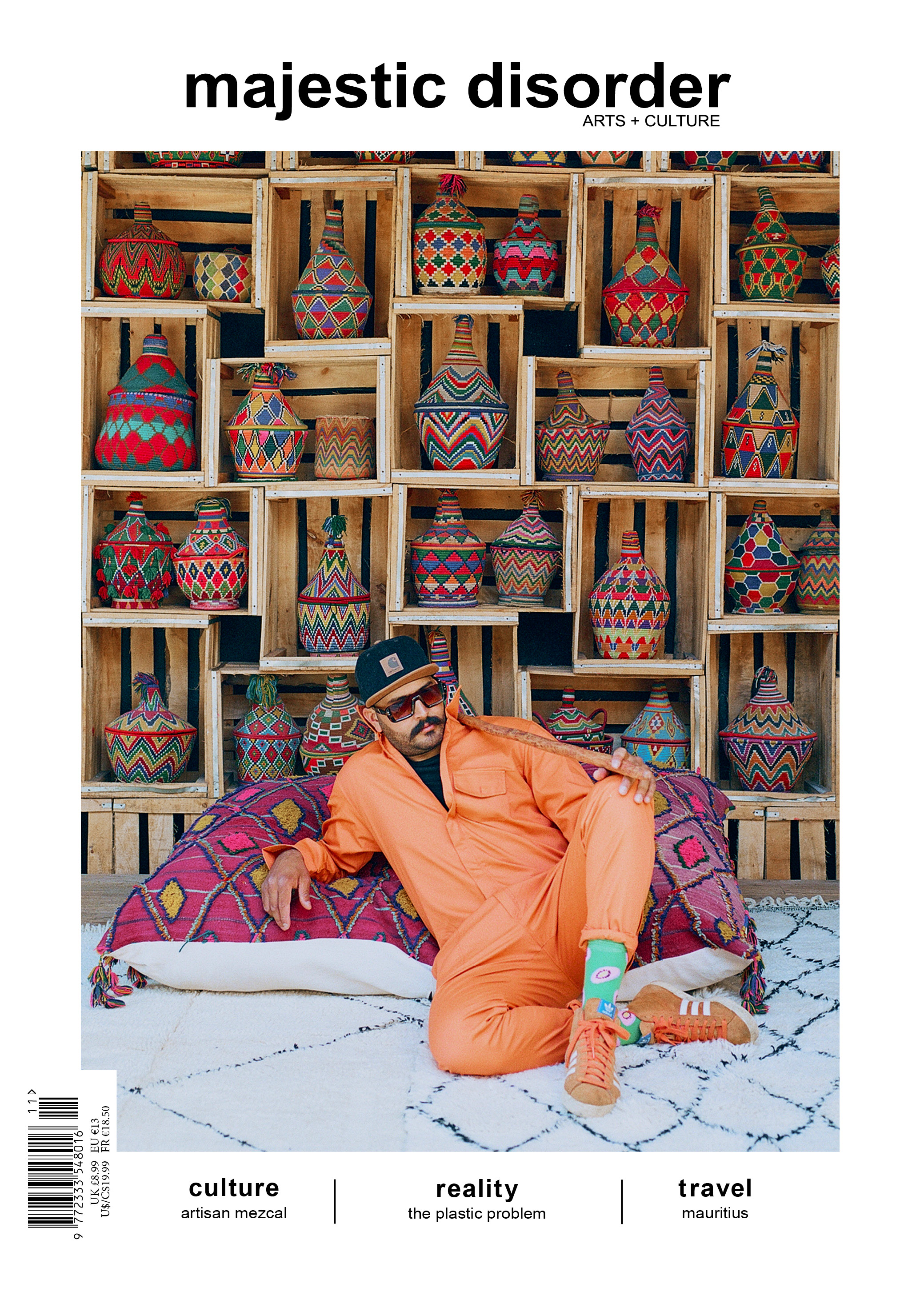
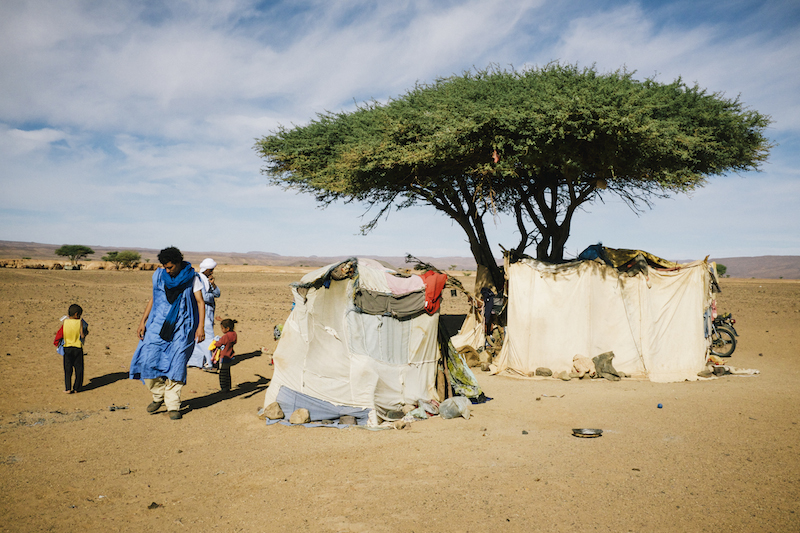
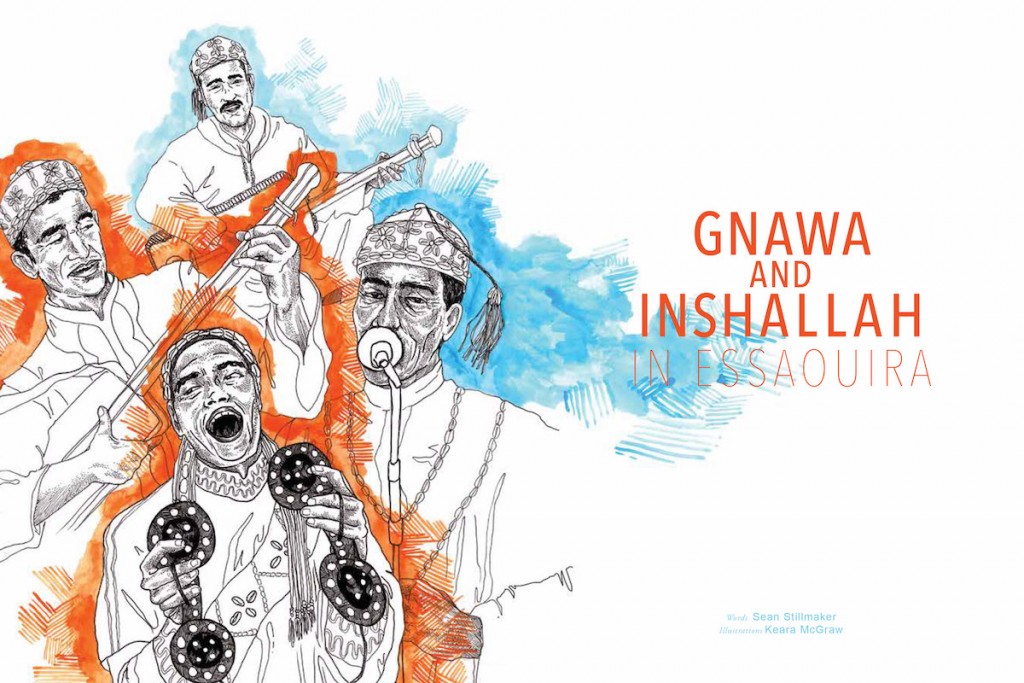
 @majesticdisorder
@majesticdisorder